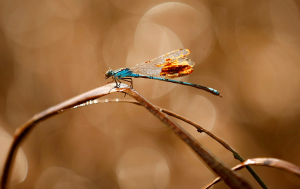
The accusations are flying in the hearing rooms of Congress. Leaders of three major companies were called in to testify, including BP Chairman Lamar McKay. Members of Congress wanted to know what happened at the Deepwater Horizon oil rig off the coast of Louisiana where oil is still spewing into the Gulf of Mexico at an alarming rate. Answers remained elusive as everybody tried to shift the blame to someone else in the room. Members (and the public) are furious. Ultimately, the solution to the larger problem lies in ending our use of hazardous fossil fuels.
BP has a history of skimping on safety regulations and getting free passes from regulators. There can be no doubt BP should rightly pay for the cleanup and pay in full. On this issue, however, the company has already been evasive. When questioned by Louisiana Senator Mary Landrieu about whether BP will pay for economic losses, BP Chairman McKay was vague, saying only that his company would pay legitimate claims. He did not, however, specify who will decide what constitutes a “legitimate” claim. We certainly don’t want to leave it up to BP, a company that attempted to get fishermen to sign liability waivers in exchange for work cleaning up the spill (a job with big health risks), and who may have other tricky maneuvers up their sleeve.
But it is wrong to assume that BP is merely one bad apple in a big barrel. Offshore oil drilling is necessarily a dangerous industry - it has a past full of large spills and more frequent smaller ones. These spills are not limited to the oil rigs themselves, like the Gulf disaster, although they are some of the most dramatic. Just last summer, another rig blowout off the coast of Australia resulted in at least 1.2 million gallons of oil being spilled into the Timor Sea.
Added to the impact from oil spills, huge quantities of drilling and production waste generated by offshore drilling is poisoning the waters around offshore oil rigs. Wastes from these rigs can contain high concentrations of mercury, cadmium, toxic hydrocarbons and radium. Most of this waste is dumped with minimal or no treatment over the side of the rig, tainting fish and other ocean life.
In fact the entire supporting complex for offshore drilling, including pipelines, tankers and storage facilities, is a giant leaky sieve. Hurricanes Katrina and Rita caused the combined release of over 8.12 million gallons of petroleum products into the Gulf, not only from rigs, but also from onshore storage facilities associated with drilling. Oil has continued seeping from these damaged facilities years after the initial storm impacts occurred.
As if major spills weren’t enough, chronic spills are a common occurrence in regions blighted by development. Drilling infrastructure continually sheds oil into surrounding ecosystems. These smaller spills can have a large cumulative impact: in the U.S. in the 10 years from 1995 to 2004, a total of 981 spills from tankers and offshore pipelines released more than 1.8 million gallons of oil. This barrage of oil spills further threaten fragile coastal and onshore environments already under a great deal of stress. The leak found just this week in the Trans Alaska oil pipeline, where BP is also involved, is yet another reminder of the ongoing threat from drilling operations.
Even if the only worry were a catastrophic event every 20 years, this would be small consolation to the devastated region. Oil can persist in an ecosystem for years after it is released. When the Exxon Valdez tanker ran aground off the Alaskan coast in 1989, it released a flood of oil causing massive damage to the area’s bird, fish and whale populations. Many of these decimated populations have not yet recovered even today, and oil from the spill is still being found in Prince William Sound.
It is easy to say that BP is the problem, and that the long-term solution is merely to punish this one reckless company. Consider, though, that the company is just one piece of a larger problem. This problem has roots in our dangerous and wasteful dependence on fossil fuels. Offshore drilling, with all of its hazards, will continue to attract support unless we change our nation’s energy policy. Development of these dirty, risky fuels is encouraged every day that we do not account for the full costs of drilling on wildlife and human health.
There is no magic technology to make offshore drilling safe. There are, however, alternatives. We can save energy in America through efficiency so that we don’t need new offshore rigs. We can get more oil out of existing fields onshore with more efficient production technologies such as enhanced oil recovery. And we can push for comprehensive legislation that puts us on the path to clean energy that can never spill or run out. The technology is there, the public is there, and we can get there by taking a different course to our energy future than through an oil slick.
This post originally appeared on NRDC's Switchboard.
Wesley Warren is NRDC’s Director of Programs. NRDC is a non-profit organization dedicated to protecting the environment, people and animals. NRDC was founded in 1970 and is comprised of more than 300 lawyers, scientists and policy experts, with more than one million members and e-activists.

